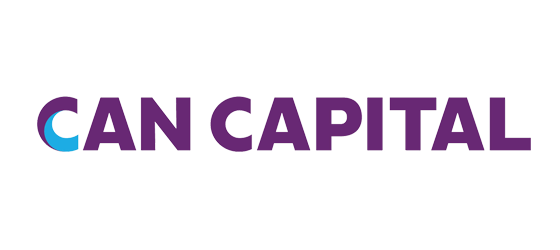Dear Chairman Crapo and Ranking Member Brown,
On behalf of the Innovative Lending Platform Association (www.innovativelending.org), the leading trade organization representing a diverse group of online lending and service companies serving small businesses, we appreciate the opportunity to submit to the Senate Banking Committee legislative proposals to increase economic growth.1
The Innovative Lending Platform Association (ILPA) members share a commitment to the health and success of small businesses in America. Â The current principal members of the ILPA include OnDeck Capital, Kabbage, CAN Capital, The Business Backer, and Breakout Capital Finance. Â The current associate members of the ILPA include Paynet, Inc., and Orion First Financial. The ILPA is dedicated to advancing best practices and standards that support responsible innovation and access to capital for small businesses. We believe that promoting sensible policies to advance the financial technology industry will improve access to capital for small businesses and foster economic growth.
In addition to the diverse group of online lending and financial services companies that make up our membership, the ILPA is proud of our Small Business Advisory Committee.  The ILPA Small Business Advisory Committee includes experts in small business finance and leaders in the advocacy community who have represented the interests of small businesses in our nation’s capital for several decades.2  ILPA’s Small Business Advisory Committee makes recommendations on alternative financing from the perspective of small business borrowers.
Financial technology companies are an important and growing source of capital for small businesses because technological innovations increase efficiencies in the payments, lending, and funding processes.  However, many of the innovations brought into the market by financial technology companies may be restricted by existing policy and regulatory frameworks that never contemplated an internet- or mobile-based economy and are failing to keep pace with such innovation. As the regulatory landscape becomes better aligned with the unique characteristics of financial technology companies, our members will better fulfill their mission to get critical capital into the hands of small businesses, America’s number one job creator.
As the Senate Banking Committee reviews legislation that can have a positive impact on the small business sector of the economy, the ILPA recommends taking action on the following legislative proposals:
The Financial Services Innovation Act of 2016 (H.R. 6118)
Introduced by Congressman Patrick McHenry (R-NC) during the 114th Congress, the Financial Services Innovation Act of 20163 is financial services legislation that reduces regulatory and legal uncertainties for financial technology companies in dealing with federal regulatory agencies.
The Financial Services Innovation Act would create “Financial Services Innovation Offices†at each federal banking regulator, such as the Treasury Department, the Securities and Exchange Commission, and the Federal Reserve Board, among others.  These offices would help financial technology companies test their products or services prior to scaling these products and services to the marketplace.
The legislation would allow a financial technology firm to petition for an Enforceable Compliance Agreement (ECA), which would essentially allow financial technology companies to propose targeted waivers, subject to appropriate compliance agreements, in order to allow innovative products and services be tested at a smaller scale. Furthermore, the legislation would be helpful to allowing innovative ideas to be brought to market in a more controlled fashion while taking into consideration consumer protection laws and safety and soundness banking rules
The U.S. must be a leader in financial and technology innovation, and providing relief for smaller firms will create new opportunities to drive innovation and position American entrepreneurs in a more competitive international position.
The ILPA looks forward to working with Members of the Senate Banking Committee to inform this innovative legislation and provide a bipartisan and workable solution.
Work with Federal financial agencies to establish clear guidance for banks to partner with Financial Technology companies.
Banks often partner with Financial Technology companies to offer new innovative solutions to financial services customers. Â However, many regulatory roadblocks exist that make it harder for banks and financial technology companies to partner in an efficient manner.
The ILPA encourages the Senate Banking Committee to work with the federal financial agencies, such as the Federal Reserve, the Federal Deposit Insurance Commission, and the Office of the Comptroller of the Currency to provide streamlined guidance to financial technology companies in order to provide more certainty and clarity to the partnership process. Furthermore, this guidance should not be too prescriptive which would deter any potential partnerships between banks and financial technology companies.
Protecting Consumers’ Access to Credit Act (H.R. 5724)
In the 114th Congress, Representative Patrick McHenry (R-NC) introduced the Protecting Consumers’ Access to Credit Act.4  This legislation would codify the “valid-when-made†doctrine which is a longstanding legal precedent that if a loan is valid when it was made, then it does not become invalid or unenforceable when assigned to another party.
The “valid-when-made†doctrine was recently, indirectly, undermined by a Second Circuit decision in Madden v. Midland Funding, LLC, even though it was never properly considered or reviewed by the Court.  The reading of the National Bank Act by Madden threatens to upset well-established bank powers, and thereby introduces uncertainty in the secondary markets for consumer and commercial credit.  The decision has had already had a negative impact on the availability of credit to certain segments of borrowers,5 and may harm financial services providers that rely on the availability and post-sale validity of loans originated by federal and state-chartered depository institutions.
The ILPA recommends to the Senate Banking Committee to pass the Protecting Consumers’ Access to Credit Act in order to provide certainty and liquidity in the commercial credit markets, which would have a positive impact on access to capital for small businesses.
The “Making Online Banking Initiation Legal and Easy†(MOBILE) Act of 2016 (H.R. 1457)
The MOBILE Act6 was introduced during the 114th Congress by Representative Scott Tipton (RCO).  This legislation clarifies that financial institutions are permitted to photocopy or swipe a driver’s license to obtain personal information and verify the identity of a person opening an account with a financial institution or obtaining a financial product or service from a financial institution.
The MOBILE Act would ensure compliance with federal bank secrecy laws by requiring the financial institution can only use the personal information to verify identity and retain information needed to open the account or obtain a financial product or service. Â Additionally, the MOBILE Act would require a notice to the consumer about the type of information collected. Â Furthermore, the MOBILE Act prevents the financial institution that obtains the information from using it to sell, rent, transfer, or make personal information available to another person (other than an affiliate).
As financial customers increasingly demand access to financial products and services through digital channels, this proposal will serve as an effective way to grow their financial capabilities. Â The MOBILE Act makes it simpler to sign up for an account online or through a mobile device from anywhere in the United States, while also improving fraud prevention methods available to financial providers.
ILPA recommends the Senate Banking Committee pass the MOBILE Act of 2016, which will have a positive impact on the ability of small businesses to access financial products through technology.
Require the Federal Reserve or the Treasury Department to explore the important distinctions between consumer and commercial lending.
There is a clear and well-established distinction between consumer lending and commercial lending in the U.S. – and for good reason.  Consumer loans are intended for financing personal consumption-driven activities such as financing the purchase of a home, auto, or television. Commercial loans, however, which includes small business loans, provide a return on invested capital. This return on invested capital is essential to economic growth, higher productivity, more jobs, a higher tax base and other essentials to improving the standard of living for U.S. citizens.  Consumer and commercial financial products and markets are very different, and efforts to conflate the two can have dangerous consequences in decreasing access to capital or limiting customer choice.
The Federal Reserve or Treasury Department should explore the unique nature of the commercial lending sector. Â The review should include an analysis on how imposing consumer lending laws or concepts on commercial lending may be detrimental to access to credit for businesses, and the resulting negative impact on economic growth and job creation in America.
The Financial Transparency Act (H.R. 1530)
The Financial Transparency Act7 was introduced in the House of Representatives by Representative Darrell Issa (R-CA). Â The Financial Transparency Act is bipartisan legislation that would modernize the U.S. financial regulatory reporting process from unstructured documents into fully searchable, standardized, and machine-readable data. Specifically, the proposal directs the eight major U.S. financial regulatory agencies to adopt consistent data fields and formats for the information that they already collect from the private sector under existing securities, commodities, and banking laws.
The Financial Transparency Act benefits investors, regulated entities, and financial regulators by providing consistent and easy to search information about financial companies. Â Of note, the legislation would not authorize any new information collections and would not release any new information not already required to be published under existing laws.
We encourage the Senate Banking Committee to pass legislation similar to the Financial Transparency Act during the 115th Congress, which would improve the regulatory reporting process for financial companies, banks, financial regulatory agencies, and investors.
ConclusionÂ
Thank you again for opening up the record to hear from stakeholders about our legislative priorities in advancing proposals to improve access to credit for businesses which have a positive impact on the American economy. Â If you have any questions about these legislative proposals, please reach out to Chris Walters, the Interim Executive Director of the Innovative Lending Platform Association at cwalters@innovativelending.org.
1 This letter responds to the Senate Banking Committee’s request for proposals dated March 20, 2017 at http://www.banking.senate.gov/public/index.cfm/republican-press-releases?ID=00BA7965-1713-4E65-AC3C8C0CB5A374FE
2 ILPA’s Small Business Advisory Committee includes participants from the Association for Enterprise Opportunity (AEO), the National Federation of Independent Business, National Small Business Association, Small Business & Entrepreneurship Council, and the U.S. Chamber of Commerce.
3Â https://www.congress.gov/bill/114th-congress/house-bill/6118/all-info?r=1
4 https://www.congress.gov/bill/114th-congress/house-bill/5724/all-info?r=2#summary
5 http://papers.ssrn.com/sol3/papers.cfm?abstract_id=2780215
6 https://www.congress.gov/bill/114th-congress/house-bill/6287
7 https://www.congress.gov/bill/115th-congress/house-bill/1530/all-info?r=1
Sincerely,








